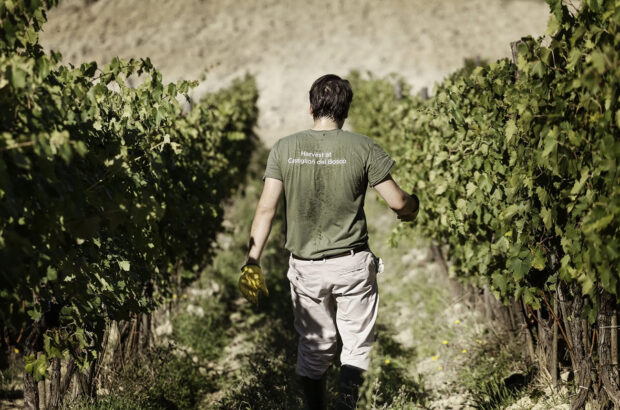Kosher wines don’t necessarily taste any different to non-kosher wines, but they must adhere to a set of Jewish dietary laws known as ‘kashrut’ and there are also several different styles to be aware of.
The word ‘kosher’ originates from Hebrew ‘רכש (kashér)’, which essentially means ‘suitable’ under the ‘kashrut’.
Wine has long played an important role in Jewish culture and tradition, and this can be seen in religious ceremonies.
‘It’s key in Sabbath dinners, and at the Passover Seder feast, participants sip from four glasses of wine,’ wrote Decanter’s Stephen Brook in a 2008 article.
What makes a wine kosher?
Interpretations vary to some extent, but to qualify as ‘kosher’ in most cases, only practising Jewish workers can handle the wine in the cellar, from crushing grapes to tasting and bottling.
Winemakers also need to be extra careful when sourcing yeasts, additives and fining agents, to make sure they are kosher, too.
Once a bottle of wine has been opened, it could cease to be kosher if handled by anyone not observant of the Sabbath.
It isn’t generally considered necessary to have the wine blessed by a rabbi, but some certification bodies may require a rabbi to supervise the production process.
Not all Israeli wines are kosher
Not all Israeli wines are kosher, but Israel is naturally the historical homeland of kosher wines and there is also evidence of vineyards being cultivated in this area going back more than 2,000 years.
In the 19th century, Jewish settlers in the Holy Land planted vineyards to replace those that had vanished under Ottoman rule. This marked the beginning of the modern wine industry in what is now Israel, said Stephen Brook.
It was then when Baron Edmond de Rothschild, son of the owner of Château Lafite, created the Carmel wine estate and started bringing in French winemaking know-how to Israel.
French varieties such as Cabernet Sauvignon, Chardonnay, Merlot and Sauvignon Blanc were also brought in at that time, and remain common varieties today.
Golan Heights Winery, which is known for its Yarden brand, has risen to international acclaim since it began producing wines in the 1980s.
Other notable names such as Ytir, Barkan, Flam and Domaine du Castel, are also playing their part in introducing Israeli and kosher wines to the world in modern times.
Do kosher wines taste different?
In most cases, not really, said US-based wine writer Howard G Goldberg in a Decanter column, back in 2009.
‘Because standard kashruth practices in the vineyard and cellar coincide with universal vineyard and cellar methods, it is relatively easy to produce high quality, competitive kosher wines in idiosyncratic and preferred standardised styles.’
However, a small percentage of kosher wines are heated as part of the production process. These wines are known as ‘mevushal’; the word literally means the wine was ‘cooked’.
After the heat treatment, the wine will remain kosher even if it comes into contact with a non-Jewish winemaker or a non-Jewish restaurant waiter or waitress serves it.
Nowadays, most mevushal wines are flash-pasteurised to 80˚C (175˚F) and immediately cooled down to 16˚C (60˚F), to minimise the impact on flavours.
In the past, wines were heated up and brought to the boil.
However, some argue that pasteurisation is not good enough for a wine to keep its kosher status.
Going international
Kosher wines are now made all over the world, from Bordeaux to California.
Goldberg said that examples of Kosher wines included Laurent-Perrier Champagne Brut NV and Châteaux Clarke in Bordeaux.
Among the various kosher certification symbols, one of the most common looks like a ‘U’ in a circle, suggesting that it’s certified by Union of Orthodox Rabbis.
A ‘K’ in a circle, a ‘K’ in a star, cRc and Hebrew ‘רכש ’ are also indicators that the wine is kosher.







